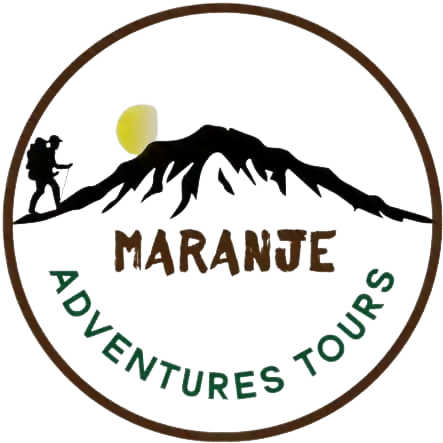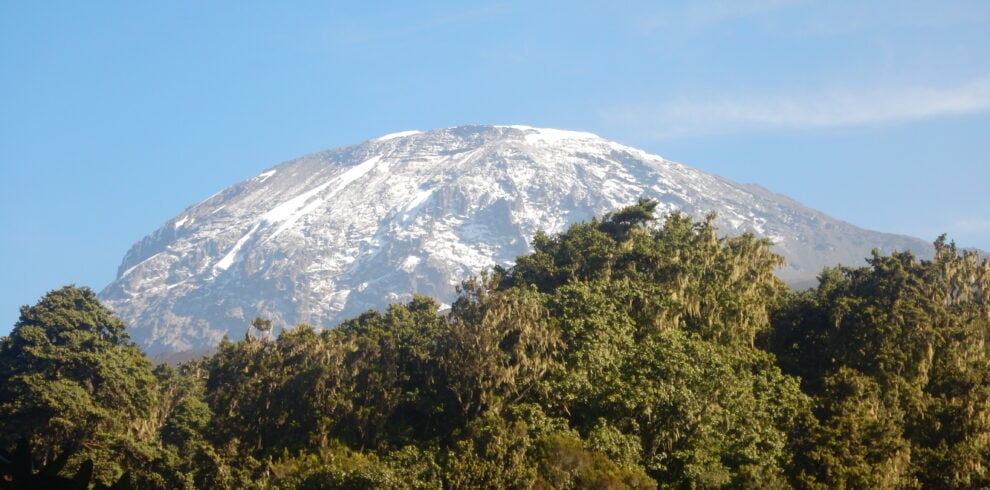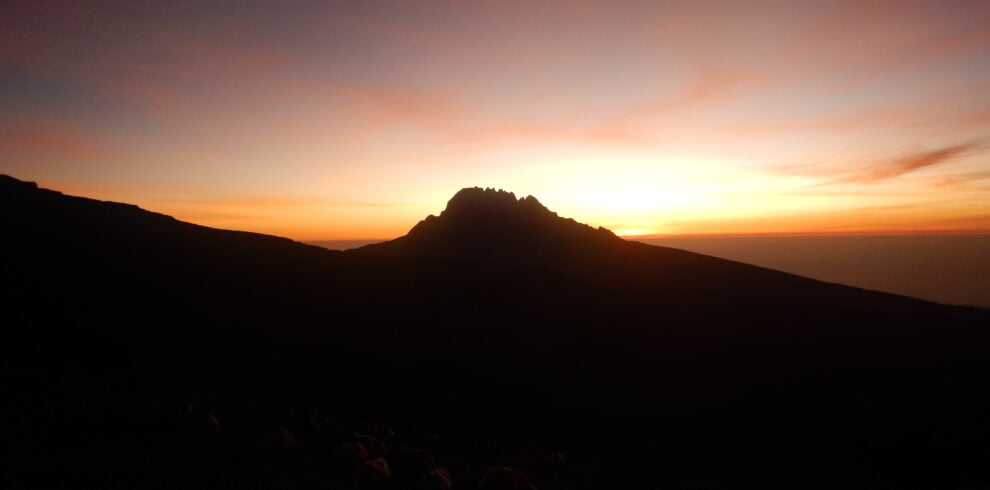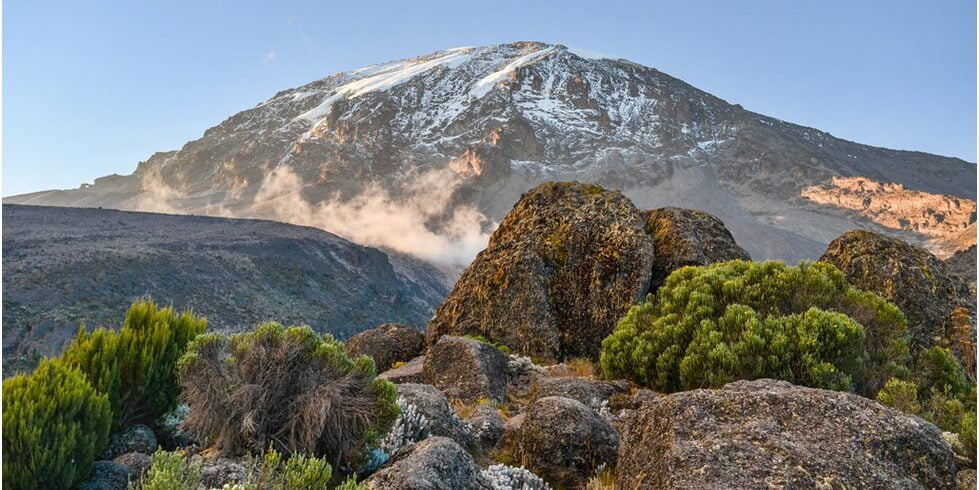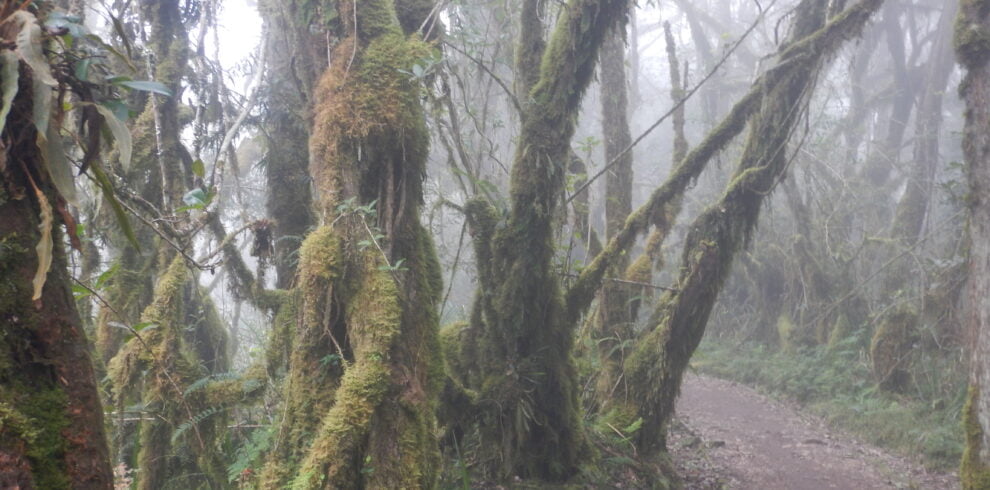Kilimanjaro Frequently asked questions
About your trek
Do I need any specific skills or gear for trekking along any of the routes?
No special skills or equipment are necessary for any of the treks, such as the Full Circuit Umbwe and Alternative Lemosho routes. They are purely walking excursions, so there’s no need for ropes, crampons, ice axes, or similar gear. All the routes are designed for walking only.
What is the duration of the trek?
The treks typically range from six to eight days in duration. The specific length of each trek is specified on the Trekking dates and prices page. While longer treks can be arranged upon request, it’s worth noting that treks shorter than six days are not booked, as this timeframe is considered too brief for proper acclimatization.
What is the maximum group size for the trek?
The trek accommodates a maximum of eight individuals. In some instances, this limit may be extended to nine or ten, particularly if, for instance, there are already seven individuals booked and a small group of two or three wishes to join. Should such a situation arise, we will communicate with those already booked on the trek to inquire if they have any concerns regarding the group size exceeding eight.
Can I be assured of reaching the summit?
You can be assured that our priority on all treks is to optimize your chances of reaching the summit. We achieve this by carefully monitoring the trek’s pace, ensuring adequate food and rest for each trekker, assessing overall health and well-being, and devising varied routes on the mountain. Our goal is to maximize our clients’ opportunities to stand atop the Roof of Africa.
However, it’s important to note that while reaching the summit is a common aspiration, our ultimate aim is to ensure that all trekkers fulfill their potential, which may not always mean reaching the summit. We will never compromise anyone’s health solely to claim a perfect summit success rate. Our foremost concern is your safety and well-being. We want you to cherish your trek, have an unforgettable experience, and develop a deep appreciation for the mountain. Above all, we want you to feel satisfied that you’ve given your best effort. If, however, it’s determined that you’re not sufficiently fit or well to attempt the summit, we will prioritize your safety and advise against the attempt.
Could I receive a refund if I am unable to reach the summit?
Unfortunately, refunds are not offered in the event of not reaching the summit.
On the Mountain
Who will be leading us during the mountain trek?
The trek will be supervised by a local guide selected for their experience, language proficiency, and expertise. I take great pride in our guides, considering them a significant advantage over other companies. As the trek approaches, I’ll provide you with detailed information about the guide(s) who will accompany you.
Am I permitted to use my mobile phone while on the mountain?
Mobile phone reception on the mountain varies, depending largely on the chosen route. Details regarding reception areas on Mount Kilimanjaro can be found at the beginning of each itinerary. Your crew will also be familiar with reception spots, often venturing to certain locations together to obtain signal.
Moreover, modern phones serve various purposes beyond communication, such as photography, sound recording, navigation, and entertainment. It’s advisable to bring battery packs to ensure your phone remains charged throughout the trek. While your guide may have a battery pack for their phone, their primary focus will be staying in touch with the office to provide updates on your progress. Consequently, they may be hesitant to lend it out, especially during the initial days of the trek.
What are the toilet and washing facilities like on Kilimanjaro?
On Kilimanjaro, there are public toilets available at the campsites, and occasionally at other locations as well. However, the condition of these facilities can be quite poor, often unclean, with broken doors and unpleasant odors. Using them, especially at night with minimal lighting, can be an unpleasant experience.
To address this, at Kili Experts, we provide private toilets on all treks, with a ratio of one toilet for every four people. These toilets come with toilet paper and are cleaned daily. While they may not offer luxury, they are private and maintained, offering a far more comfortable option than the public facilities.
Regarding hygiene, standards on Kilimanjaro are modest, but we take measures to ensure your safety and well-being during the trek. Hand sanitizers are available in the mess tent before meals, and porters are encouraged to use separate sanitizers.
Additionally, we provide a bowl of hot water and soap twice a day, morning and evening, for each trekker to freshen up. While this bathing routine may be minimal compared to home, it’s important to remember that everyone on the mountain faces similar challenges due to limited water supply. After a couple of days, appearances become less of a concern. Wet wipes are also provided for maintaining cleanliness, with an emphasis on proper disposal to avoid littering the campsite.
Will I be expected to tip my Kilimanjaro crew, including the porters and guides?
Yes, tipping your Kilimanjaro crew, which includes porters and guides, is customary.
